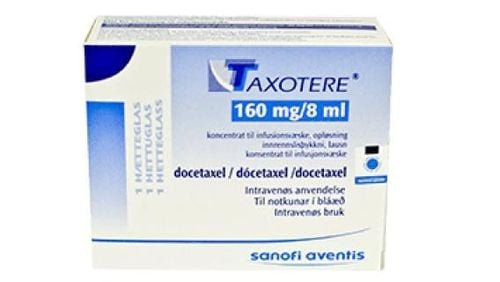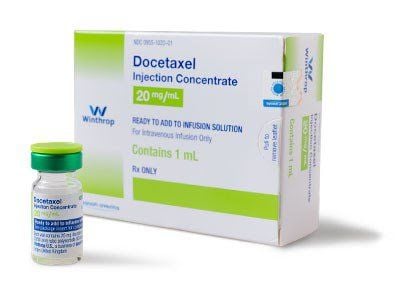This is an automatically translated article.
Anemia is a condition in which the body does not have enough healthy red blood cells to supply oxygen to body tissues. There are different types of anemia with different etiology and pathogenesis. Biermer's pernicious anemia is a form of macrocytic anemia, which occurs when the number of red blood cells is reduced and abnormal in size as a result of the intestinal lining not being able to properly absorb vitamin B12.
1. What is Biermer pernicious anemia?
Pernicious anemia is a disease in which red blood cells are abnormally formed due to vitamin B12 deficiency, because of the inability to absorb during synthesis due to insufficient intrinsic factor. However, the term “pernicious anemia” is a term used in the past, when the pathogenesis was still poorly understood. Today, this condition is commonly identified with the name Biermer anemia. Vitamin B12, or cobalamin, plays an important role in the development of red blood cells. It is found in significant amounts in liver, meat, milk and dairy products, and legumes. During the digestion of foods containing vitamin B12, this vitamin becomes attached to a substance called intrinsic factor, which is produced by parietal cells lining the stomach lining. The intrinsic factor complex and vitamin B12 then enter the intestines, where the vitamin is absorbed into the bloodstream. Therefore, vitamin B12 can only be absorbed when it is bound with intrinsic factor.
In pernicious anemia or Biermer's anemia, the parietal cells of the stomach stop producing intrinsic factor. At that time, the intestines are completely unable to absorb vitamin B12. Therefore, the vitamin will be eliminated from the body as waste. Although the body has a significant reserve of vitamin B12, this will eventually be used up. At this time, the symptoms of pernicious anemia will emerge.
Pernicious anemia is most common in Northern Europeans and African-Americans, and is less common in Southern Europeans and Asians. The disease occurs in equal numbers in both men and women. Most patients with pernicious anemia are elderly, often over 60. However, children born with a genetic defect that results in a deficiency of intrinsic factor will also develop pernicious anemia.

Thiếu máu ác tính nguyên nhân có thể do thiếu vitamin B12
2. What are the symptoms of Biermer's pernicious anemia?
The symptoms of pernicious anemia and low vitamin B12 will affect three systems of the body, including: the hematopoietic system, the digestive system and the nervous system.
The hematopoietic system is damaged because vitamin B12 is necessary for the formation of red blood cells. Without this vitamin, the production of red blood cells is drastically reduced. The red blood cells produced will be abnormally large and irregularly shaped. Because red blood cells are responsible for transporting oxygen throughout the body, a low number of red blood cells can lead to a number of symptoms including: fatigue, dizziness, ringing in the ears, pale or yellow skin , chest pain, tachycardia, enlarged heart, and abnormal murmur.
Symptoms affecting the digestive system include pain and bright red tongue, loss of appetite, weight loss, diarrhea and abdominal cramps. The mechanism is because the disease originates from a deficiency of intrinsic factor, which is produced by specialized cells in the lining of the stomach called parietal cells. As parietal cells atrophy, they produce less and less intrinsic factor. Eventually, parietal cells cease to function completely. Other important parietal cell products are also reduced, including stomach acids and an enzyme involved in protein digestion. Therefore, the patient not only suffers from anemia but also has symptoms of digestive disorders.
Nervous system is severely affected by pernicious anemia if left untreated. Symptoms include numbness, tingling, or burning in the arms, legs, hands, and feet; muscle weakness; feeling of difficulty and loss of balance when walking; changes in reflexes; irritability, confusion, and depression.
At the same time, people with pernicious anemia seem to be more likely to have certain other diseases. These conditions include autoimmune disorders, especially those affecting the thyroid, parathyroid, and adrenal glands.

Thiếu máu ác tính Biermer khiến cơ thể người bệnh mệt mỏi
3. How is Biermer pernicious anemia diagnosed?
The diagnosis of pernicious anemia is suspected when blood tests show abnormally large red blood cells. Changes in red blood cell shape appear earliest, the reticulocyte count will also be low. White blood cells and platelets may also be reduced in number. The test measures the level of circulating vitamin B12 in the blood.
Once these definitive tests are done, it will be important to diagnose the cause of the anemia. True pernicious anemia means that the parietal cells of the stomach atrophy, leading to a decrease in the production of intrinsic factors. This diagnosis is made by the Schilling test. In this trial, patients will be injected with radioactive vitamin B12 under two different conditions: once alone and once with intrinsic factor. Normally, a large amount of vitamin B12 is absorbed through the intestines, then circulates through the bloodstream and enters the kidneys, where a certain amount of vitamin B12 is excreted in the urine. When a patient has pernicious anemia, the self-sufficient dose of vitamin B12 will not be absorbed by the intestines, so it will not pass through the urine. Therefore, the concentration of this vitamin in the urine will be low. By actively providing vitamin B12 with intrinsic factor, the intestine can absorb the vitamin. As a result, the concentration of vitamin B12 in the urine will be higher.
4. Is Biermer pernicious anemia treatable?
Treatment of pernicious anemia Biermer has the basic principle of lifelong parenteral vitamin B12 supplementation. Injecting Vitamin B12 directly into the bloodstream no longer requires an intrinsic factor. At first, the person may need to take injections several times a week to accumulate the necessary amount of vitamin. After that, the injections can be spaced monthly.
Other substances also needed for blood cell production may also need to be supplemented, such as iron and vitamin C.

Thiếu máu ác tính Biermer cần bổ sung vitamin B12 qua đường tiêm suốt đời
5. Is Biermer pernicious anemia dangerous?
The prognosis for Biermer's pernicious anemia is generally good, contrary to the name "malignant" if properly treated. Symptoms of severe anemia will improve significantly within a few days of starting treatment.
However, some nervous system symptoms can take up to 18 months to fully improve. In cases where the patient is diagnosed late or treatment is delayed for a long time, some neurological symptoms can become permanent sequelae.
In addition, because an increased risk of gastric cancer has been observed in patients with pernicious anemia, this population should be carefully monitored, even if all symptoms of the disorder are present. The original has been improved. At the same time, periodic gastric cancer screening is necessary, as subjects are classified in high-risk groups.
In summary, the term “pernicious anemia” is an outdated word, when the treatment of this disease is not well understood. Accordingly, because the way to correct the disorder of red blood cell synthesis in this disease is simple with periodic vitamin B12 injection, the patient's prognosis is very good. It is important to diagnose the cause of megaloblastic anemia early to intervene in time, to limit sequelae.
With a team of qualified doctors with many years of experience and a system of modern equipment and facilities. Currently, Vinmec International General Hospital is a prestigious address for examination and treatment. Patients who come to Vinmec will receive a quick, accurate medical examination process with extremely reasonable treatment costs.
Therefore, when there is a need for medical examination and treatment, customers can directly go to hospitals of Vinmec Health System nationwide for in-depth consultation.
Please dial HOTLINE for more information or register for an appointment HERE. Download MyVinmec app to make appointments faster and to manage your bookings easily.
Source: medical-dictionary.thefreedictionary.com - emedicine.medscape.com - pennmedicine.org












